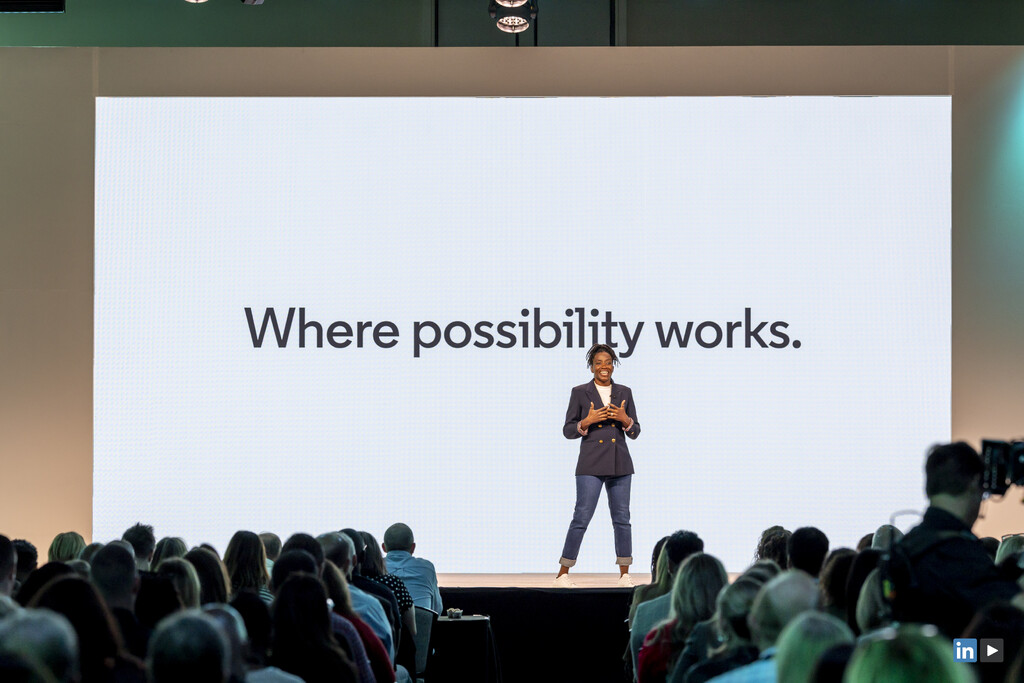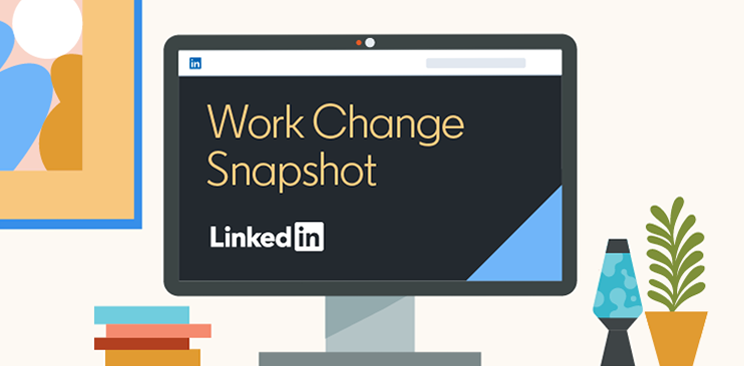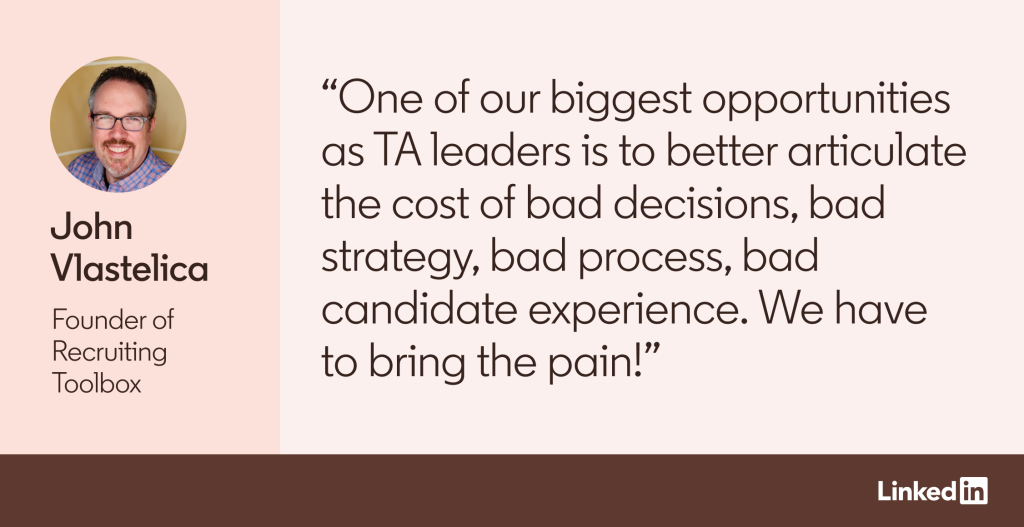Do you love uncertainty? Wish that there were more of it in the talent world?
If you said “yes,” you’re likely in the minority. Most people — even adventurous ones — struggle with uncertainty. And the talent world has dished up an extraordinary amount of it over the past few years, from the pandemic to mass layoffs to a bumpy global economy, not to mention generative AI.
If it makes you feel any better, even the most Zen people on the planet usually need years or decades to get to a point where they can face uncertainty with calm. For the rest of us, it’s often just hard. But it is possible to stay sane, and even thrive, as the labor market (and so much else) bounces up and down.
To get a better idea of how to do this, we posed the following question to four talent acquisition leaders: In this unpredictable market, what’s the best way to handle uncertainty and stay resilient?
Below you’ll find their answers, which are filled with wisdom, tips, and the reassurance that this too shall pass.
Things have been changing extremely quickly but recruiters who have been in the business for a while know that if they want longevity in the industry, they have to avoid the status quo and be adaptable. We know change is inevitable and when resources are scarce, it is better to use those resources to embrace change rather than fight it.
One often overlooked resource is that of relationship-building. Navigating uncertainty is easier done when you have strong relationships with hiring managers. When you’ve cultivated trust and built a network of professionals who recognize and rely on your skills, you become an indispensable part of an already challenged talent acquisition team.
Hung Lee: Be open about what you’re going through and lean into the community
Firstly, It is important not to take these hard yards personally. This market is as challenging as I’ve seen for talent leaders on the job search. It is critically important to maintain your morale during this period — your eventual success will depend on it.
Secondly, be open with your journey. LinkedIn is more than just a job board of opportunities, it is a distribution channel for your personal brand. Talking about your experience of the job market, the lessons you’re learning as you go, and recommendations for others who may follow are great ways of elevating your profile and “soft” advert for your availability.
Finally, lean into the community. Find a way to support a recruitment community you’re part of — whether this is being available for events, contributing to conversations, or facilitating connections. You will feel better for the interaction and increase the chances of surfacing up information and potentially valuable market intelligence that you wouldn’t have otherwise given yourself a chance to find.
J.T. O’Donnell: Take time to jump-start your personal brand
In a world where every job is temporary, talent professionals need to think of themselves as a brand. Start documenting your thoughts, ideas, and observations as they relate to the change. You don’t have to have all the answers. But you do have to drive the conversations that can help you find them.
It’s time to start using your LinkedIn feed as a way to learn and grow. I encourage you to post a minimum of once a day on the platform. Serve your network by inviting them to share their own perspectives. This is the new normal for transformation. The flow and exchange of information between people is hyper-speeding thanks to social media.
The sooner you lean into this type of activity, the faster you will see your own thoughts and ideas advance. In short, we all need to be more than life-long learners. We need to be daily learners. And in my experience, this is the most optimal way to do it. The 15 to 30 minutes a day you spend doing this can be the difference between catapulting your career in the future or becoming irrelevant. It’s your choice.
Stacy Donovan Zapar: Prioritize your well-being and stay adaptable by investing in yourself
In this volatile talent market, staying resilient is paramount. I don’t have all of the answers, but here’s what works for me:
Stay adaptable by upskilling and investing in yourself. As the talent world shifts more and more to skills-first hiring, take time to invest in your own skills. Embrace change by upskilling in emerging technologies like gen AI or broadening your horizons to include tech/executive
/diversity recruiting. Take virtual classes or enroll in low-cost, local courses. Offer to shadow other team members or pitch in on projects where you’ll gain valuable new skills and experiences.
More than ever, focus on relationship-building. In a world where AI and automation are taking over manual processes, differentiate yourself as a talent professional who builds relationships, interacts strategically with candidates and hiring managers, and could never be replaced by a bot. Recruiting has always been about connections and being able to engage the right people at the right time, so continue to cultivate a strong network that’s a benefit to both you and your employer.
Don’t forget to prioritize well-being. I’m often reminded of the self-care quote: “You can’t pour from an empty cup.” Take care of yourself and let go of the things we just can’t control. Get outside or hang with friends or family. Turn off screens. Give yourself grace. Know that you’re not the only one experiencing anxiety or stress. This too shall pass!
Thank you to the talent leaders who shared their insights. To get the latest news and insights from each of them, be sure to follow Stacey Gordon, J.T. O’Donnell, and Stacy Donovan Zapar on LinkedIn and subscribe to Hung Lee’s newsletter, Recruiting Brainfood.










